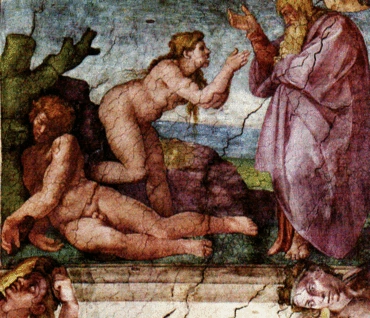Explanation of Genesis 2:24
От Brian David

This verse uses "man" in a masculine sense, meaning thoughts and ideas in the intellect. Leaving father and mother means leaving the former state of internal spiritual awareness, and cleaving to his wife means being conjoined instead with the external awareness of life. Being one flesh means that the internal of the man and the external of the wife were together as one in life.
The people of the Most Ancient Church wanted to live from themselves. So the Lord created in them the capacity to feel that, though it meant they had to descend from the spiritual awareness they had enjoyed. But they weren't bad people; they still loved the Lord and wished to be good. They just wanted to feel that they were doing it themselves. By having the man cleave to the wife, the Lord allowed the people's higher internal states to enter into their external lives and be part of that sense of self, so they could indeed love the Lord as if from themselves.
(Препратки: Arcana Coelestia 160, 161, 162)
Arcana Coelestia #594
594. 'From man [even] to beast and even to creeping thing' means that everything belonging to his will would bring about his end. This is clear from the meaning of 'man', 'beast', and 'creeping thing'. Man is not human except by virtue of his will and understanding, which set him apart from animals. In all other respects man and animals are very similar. With the people of those times all will for good and all understanding of truth perished. Insane desires took the place of the will for good and insane delusions took the place of the understanding of truth, and these delusions and desires were mingled together. Consequently after they had destroyed their remnants in this way so to speak, they were inevitably destroyed. It is clear from what has been shown already about beasts and creeping things that whatever belongs to the will is called 'beasts and creeping things'. Here however because of the kind of man who is the subject 'beasts' does not mean good but evil affections, that is, evil desires, and 'creeping things' means pleasures both of the body and of the senses. That beasts and creeping things have such meanings requires no further confirmation from the Word, since they have been dealt with already; see 45, 46, 142, 143.






